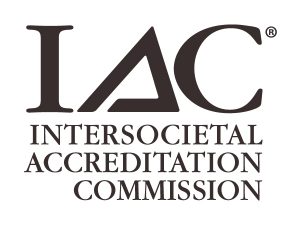PSQH Quick Poll 2024: Taking the Pulse of Patient Safety
By Jay Kumar
As part of PSQH’s celebration of Patient Safety Awareness Week, we decided to reach out to our readers with a few questions to find out the state of patient safety efforts in 2024. This PSQH Quick Poll is presented in partnership with Origami Risk, Avtec, and IAC.
The survey had a total of 285 respondents.
Strengthening Nursing’s Role in Quality and Patient Safety
Asked about how their organizations can help strengthen nursing’s role in quality and patient safety efforts, 75% of respondents said more education and training is needed. In addition, 71.8% said mentoring from leadership was necessary, while 40% called for increased emotional support and 39.7% said more leadership opportunities for nurses would be helpful. Other write-in responses included:
- Continue to build on existing education, training, and emotional support
- Leadership should be clinical, not nonclinical
- Improved staffing or reduced workload to allow teams to focus on details
- Audit then on-the-spot retraining
- Participation in quality improvement activities
- Don’t overwork frontline staff so they are willing to participate in activities outside of normal shift time. Don’t require participation in safety work to be in addition to their normal shifts.
- Rounding and engaging staff
- More quality and safety staff
- Safe staffing and recognition that the skill level of the workforce is less and the acuity is increasing. This requires greater support.
- Specific education related to the safety sciences

Preparedness for Another Viral Outbreak
Asked about their organization’s preparedness for another viral outbreak such as COVID-19, 50.5% of respondents said they were very prepared while another 44.4% said they were somewhat prepared. Only 5% said they were not prepared.

Workplace Violence
A major issue in all workplaces, but especially healthcare, is workplace violence. Asked about their level of concern regarding workplace violence, 47.1% said they were very concerned, 38.6% were somewhat concerned, and 14.3% were not concerned.

AI in Healthcare
Asked about their feelings on the use of artificial intelligence (AI), 52% of respondents said they were both excited and concerned about AI, 20% were concerned about the risks involved, 15% were excited about the possibilities of using AI to improve efficiency in provision of care, and 13% said they didn’t know enough about AI to have an opinion yet.

Issues That Need More Focus
Respondents were asked which issues their organization needed to focus on more. In addition to the issues listed (staff retention, care transitions between settings, workplace violence, diagnostic errors, and opioids and drug diversion), write-in responses included:
- Standards of care/patient safety
- Salary incentives: bonuses/raises, etc.
- Hiring more staff, programs that offer career leaders within company to keep employees promoted into new positions, etc.
- Lack of policy/procedure enforcement, weak ineffective leadership
- Vaccines for healthcare workers
- Diversity and inclusion
- Educating senior leadership on Just Culture, nepotism, and cronyism with financial reward
- TJC and DOH visits
- Staff accountability
- Cyberattacks
- Medication errors, electronic medical records
- Leadership
- Employee rights
- Hospital-acquired conditions
- Workplace violence and staff retention go hand in hand
- Hiring
- Good orientation



